Managing the demands of your career while being fully present at home requires a delicate balancing act and having insurance is a great way to give yourself peace of mind especially in uncertain and unfavorable times the current Covid-19 outbreak.
In a recent employee happiness survey, “48% of employees who felt unhappy on the job cited a lack of work-life balance as the main culprit.”
Due to the changing dynamics, resulting in dual-earner families and above all, a clash of work and personal life, balancing both the dimensions of professional and personal life is of growing concern, and the same can be seen in insurance companies where creating wealth is given the top priority and work-life integration is miles apart.
Every day, insurance companies pay benefits to the beneficiaries of their policies providing them with needed and certainly welcome funds. In essence, insurance provides leverage: you pay a relatively small amount of money to the insurance company in the form of a “premium” and in return, the insurance company provides a guaranteed payout of a relatively large amount of money upon the uncertainty.
“Insurance isn’t a waste of your money, it’s the leverage you need to gain financial freedom” – Mark J. Kohler.
Insurance is a way of managing risks. When you buy insurance, you transfer the cost of potential loss to the insurance company in exchange for a fee. Insurance companies will then invest the funds securely, so it can grow and payout when there is a claim resulting in the creation of wealth.
Work-life balance is fundamental to sustainable business which is ultimately about improving the quality of life for everyone. It results in more productivity and balanced work commitments. Work-life integration is an issue increasingly recognized as of strategic importance to the organization, especially insurance. In this article, we will focus on how insurance can be leveraged to create wealth and simultaneously help to maintain a desired work-life balance.
The biggest challenge?
The challenge of creating wealth and maintaining a work-life balance in the insurance industry is definitely real. Most insurance work is ‘knowledge work,’ meaning that wherever your brain goes, your work follows. This is extremely useful, especially in a remote working scenario. However, the ability to find proper balance is accompanied by the pressure to work from anywhere. People who work in this industry are keenly aware of the challenge of finding and maintaining a so-called work-life balance and simultaneously creating wealth.
Work-life balance is a generic phrase that covers a person’s feeling about every dimension of work including economic rewards and benefits, security, working conditions, organizational and interpersonal relationships, and its intrinsic meaning in personal life.
After the liberalization of the insurance industry, the major challenge faced by insurance companies is employee turnover or a high attrition rate. It estimated-
“The Global Insurance industry is set to grow at a massive rate and said to be ranked among the top 3 sectors in the world by 2022.”
No concept of work-life balance is going to work without the right people to power it. At work, you need to make sure you are around people who understand and respect your life outside the office. These are the people you can depend on if you need to take your time off to be with your family or deal with an emergency.
The best thing about involving the right people is that they often make the work-life decisions for you. The basic purpose of improving work-life balance is to change the climate of work so the human organizational interface leads to better work-life integration.
